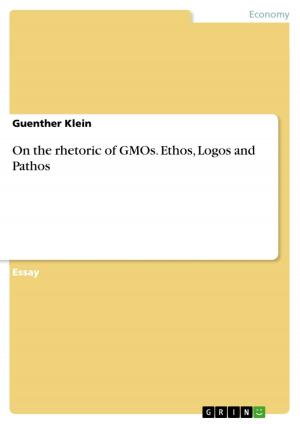Benjamin Franklin's Autobiography. The work of a selfish man?
The work of a selfish man?
Fiction & Literature, Literary Theory & Criticism, British| Author: | Moritz Oehl | ISBN: | 9783638336949 |
| Publisher: | GRIN Publishing | Publication: | January 10, 2005 |
| Imprint: | GRIN Publishing | Language: | English |
| Author: | Moritz Oehl |
| ISBN: | 9783638336949 |
| Publisher: | GRIN Publishing |
| Publication: | January 10, 2005 |
| Imprint: | GRIN Publishing |
| Language: | English |
Essay from the year 2002 in the subject English Language and Literature Studies - Literature, grade: 2,0, Sewanee the University of the South, course: English 377: American Literature until 1860, 1 entries in the bibliography, language: English, abstract: Benjamin Franklin was one of the most famous and important participants in the American Revolution of the 1760's to 1780's. Like 55 other important political figures of that time, he was a delegate of the Continental Congress who signed the Declaration of Independence. He is the author of many valuable maxims that are used in everyday conversations still today. Without doubt - Franklin is one of the first celebrities and most remembered political figures in US history. He had an enormous impact on the new American self-confidence and, even more important, the American way of life. But when looking at his Autobiography, many people argue that it does not include any reference to his achievements for society. In contrast, it is stated that these works seem to be revolving only around the events that had a purpose for him personally. Is Franklin a mere egoist or someone who cares about others, too? The first evidence of Franklin mentioning aid to others in the Autobiography is assistance to the 'Tallow-Chandler and Soap-Boiler' (Franklin, 542) job of his father. Like all children in the 18th century he is involved in work for the family. This is not surprising, yet. Besides, he learns in his childhood, that 'nothing was useful which was not honest' (Franklin, 543). If we look at honesty as a part of respecting and also helping people, Franklin therefore must have been taught mature behavior at an early age. His working career starts when he is still a kid. Franklin's inclinations are to become a printer. From the age of 12 on, he does an apprenticeship at his brother's business. Franklin tells us about his time there: 'In a little time I made great proficiency in the Business, and became a useful hand to my Brother' (Franklin, 545). O nce again, it is not only pure self- interest that makes a difference in his life. This is even more evident by the fact that he obviously wrote his Autobiography many years later; still, he regards have taken the advices of his family members for granted, too.
Essay from the year 2002 in the subject English Language and Literature Studies - Literature, grade: 2,0, Sewanee the University of the South, course: English 377: American Literature until 1860, 1 entries in the bibliography, language: English, abstract: Benjamin Franklin was one of the most famous and important participants in the American Revolution of the 1760's to 1780's. Like 55 other important political figures of that time, he was a delegate of the Continental Congress who signed the Declaration of Independence. He is the author of many valuable maxims that are used in everyday conversations still today. Without doubt - Franklin is one of the first celebrities and most remembered political figures in US history. He had an enormous impact on the new American self-confidence and, even more important, the American way of life. But when looking at his Autobiography, many people argue that it does not include any reference to his achievements for society. In contrast, it is stated that these works seem to be revolving only around the events that had a purpose for him personally. Is Franklin a mere egoist or someone who cares about others, too? The first evidence of Franklin mentioning aid to others in the Autobiography is assistance to the 'Tallow-Chandler and Soap-Boiler' (Franklin, 542) job of his father. Like all children in the 18th century he is involved in work for the family. This is not surprising, yet. Besides, he learns in his childhood, that 'nothing was useful which was not honest' (Franklin, 543). If we look at honesty as a part of respecting and also helping people, Franklin therefore must have been taught mature behavior at an early age. His working career starts when he is still a kid. Franklin's inclinations are to become a printer. From the age of 12 on, he does an apprenticeship at his brother's business. Franklin tells us about his time there: 'In a little time I made great proficiency in the Business, and became a useful hand to my Brother' (Franklin, 545). O nce again, it is not only pure self- interest that makes a difference in his life. This is even more evident by the fact that he obviously wrote his Autobiography many years later; still, he regards have taken the advices of his family members for granted, too.















